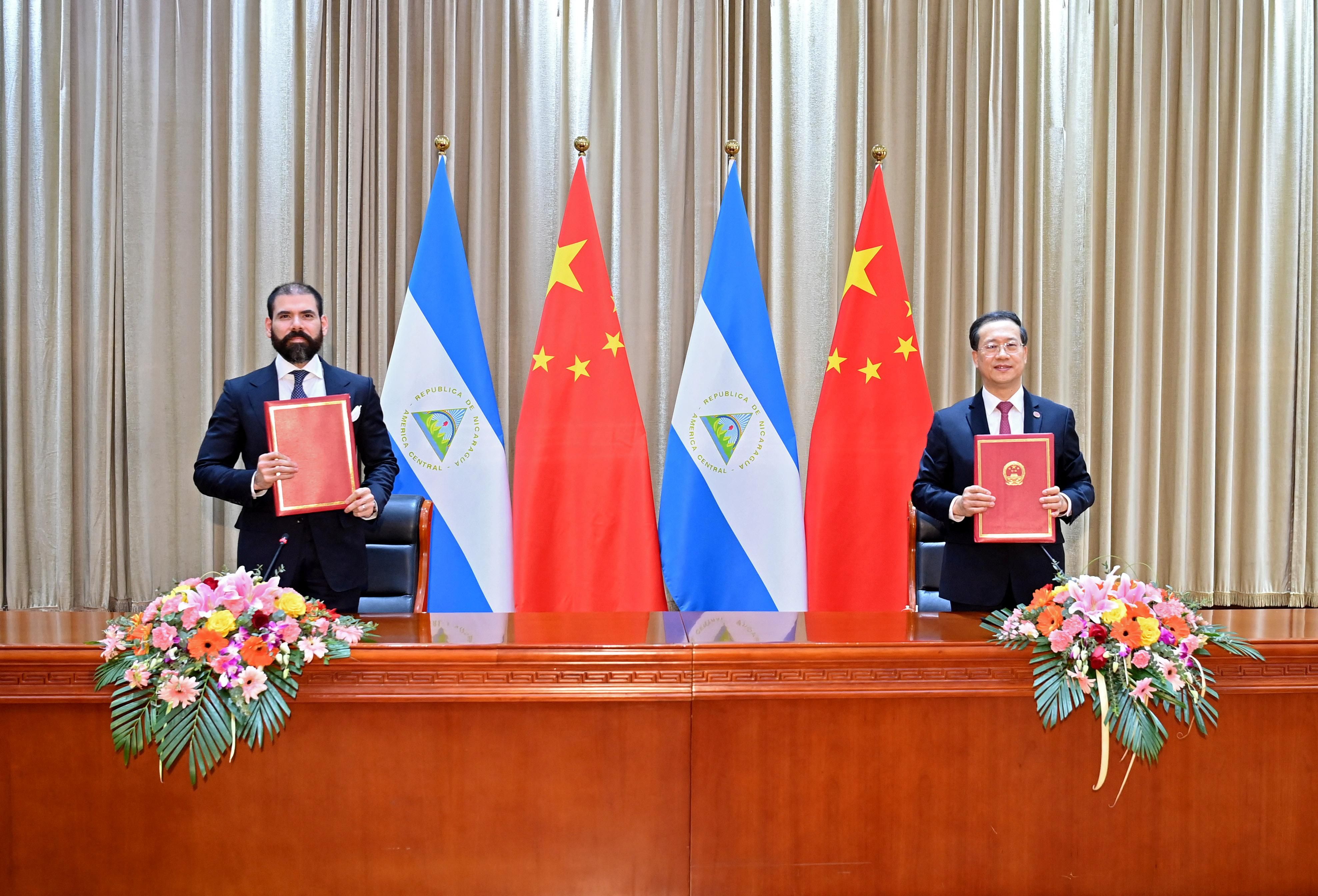Taiwan’s decreasing diplomatic traction. Nicaragua is the latest country to drop recognition of Taiwan in favor of the People's Republic of China, which considers the self-governing island as part of its territory. Beijing has long lobbied aggressively for the diplomatic isolation of Taiwan with both carrots (mostly promising a lot of cash to those who switch sides) and sticks (like downgrading ties with Lithuania for allowing Taiwan to open a de-facto embassy in Vilnius). China's efforts are paying off: today only 13 mostly small nations plus the Vatican still recognize Taiwan and not the People’s Republic, down from 21 just five years ago. But in Central America the tilt towards Beijing also has to do with US sanctions against the authoritarian leaders of first El Salvador — which ditched Taiwan to embrace China three years ago — and now Nicaragua. Meanwhile, China continues to invest big in the region, and will likely spend more money in Nicaragua very soon. Ironically, Washington’s actions to aid democracy in Central America may actually bring some of its countries closer to America's authoritarian rival.
